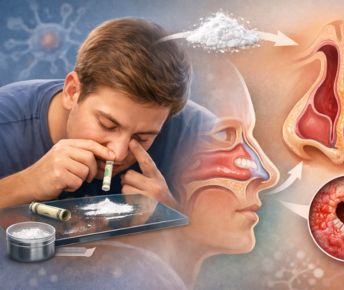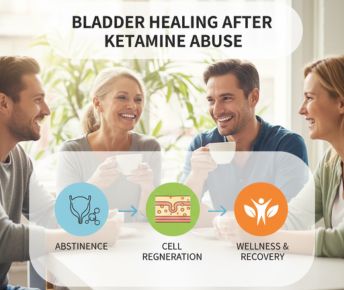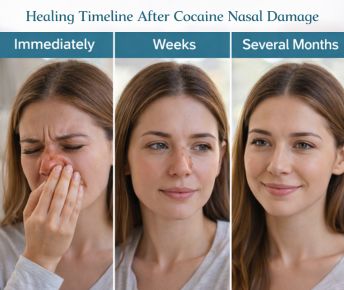Narcotics Anonymous is a program of addiction recovery that has helped countless people recover from addiction since it was first established in 1953. The program centers around the 12 steps, a guide to recovery derived from the 12 steps of Alcoholics Anonymous.
In this blog, we go into depth on exactly what is Narcotics Anonymous, what the 12 steps involve, and the problems with NA.
Narcotics Anonymous Meetings
Narcotics Anonymous (NA) meetings are a vital component of the global recovery community. They provide support and fellowship for people who want to stop using drugs. Modeled after the principles of Alcoholics Anonymous (AA), NA meetings follow a structured format, including readings from NA literature, personal sharing, and discussions related to the 12 steps and traditions.
NA meetings offer a supportive community where people share their experiences, challenges, and successes in a confidential and empathetic environment. This sense of fellowship can be a powerful motivator for those in recovery. NA meetings are open to anyone with a desire to stop using drugs. There are no membership fees or requirements beyond a genuine commitment to recovery.
Narcotics Anonymous Sponsorship
Narcotics Anonymous sponsorship is a fundamental aspect of the recovery process within the NA community. A sponsor is someone who has successfully navigated the 12-step program and offers guidance and support to someone newer in their recovery journey.
Sponsors offer support, encouragement, and practical advice to help the sponsee navigate the challenges of recovery.
Sponsors also guide their sponsees through the 12 steps, helping them explore and address underlying issues, make amends, and develop a spiritual connection. This step work is a vital part of recovery from drugs, the NA way.
The 12 Steps Of Narcotics Anonymous
The 12 steps of Narcotics Anonymous are designed to help you recover from addiction to drugs. They involve 12 distinct steps that each address a different aspect of addiction.
The steps themselves are found in the “Narcotics Anonymous Step Working Guide”. You should use this guide alongside the “Narcotics Anonymous Step Working Guide.” Make sure that you only work the steps with a sponsor, as it is not possible for you to do them by yourself.
Step One - Admitting Powerlessness
“We admitted that we were powerless over our addiction, that our lives had become unmanageable.”
The first step involves recognizing the lack of control over drug use and acknowledging the chaos it has caused in one's life
Step Two - Believing in a Higher Power
“Came to believe that a Power greater than ourselves could restore us to sanity.”
This step emphasizes the importance of faith in a higher power, which may be understood in various ways depending on individual beliefs.
Step Three - Turning Will and Life Over
“Made a decision to turn our will and our lives over to the care of ;d as we understood Him”
This step involves surrendering control and entrusting one's life to a higher power for guidance and support.
Step Four - Personal Inventory
“Made a searching and fearless moral inventory of ourselves.”
In step four you create an inventory of your actions, behaviors, and character. This step encourages an honest self-appraisal which can help in your recovery from substances.
Step FIve - Admitting Wrongs
“Admitted to ;d, to ourselves, and to another human being the exact nature of our wrongs.”
Sharing the results of the personal inventory with a a sponsor fosters accountability and self-awareness.
Step Six - Ready for Change
“Were entirely ready to have ;d remove all these defects of character.”
This step involves being open to personal growth and transformation, allowing a higher power to help overcome character flaws.
Step Seven - Gaining Humility
“Humbly asked Him to remove our shortcomings.”
Continuing the process of self-improvement, this step involves asking a higher power for guidance in addressing and overcoming personal shortcomings.
Step Eight - Making Amends
“Made a list of all persons we had harmed and became willing to make amends to them all.”
This step focuses on recognizing the impact of addiction on others and being prepared to make amends as part of the recovery process.
Step Nine - Amending Relationships
“Made direct amends to such people wherever possible, except when to do so would injure them or others.”
Taking concrete actions to repair relationships and address the harm caused by addiction is the essence of this step.
Step Ten - Continuous Self-Reflection
“Continued to take personal inventory and when we were wrong promptly admitted it.”
This step emphasizes the importance of ongoing self-reflection and a willingness to promptly acknowledge and correct mistakes.
Step Eleven - Spiritual Connection
“Sought through prayer and meditation to improve our conscious contact with ;d as we understood Him, praying only for knowledge of His will for us and the power to carry that out.”
Developing a spiritual practice, including prayer and meditation, helps maintain a connection with a higher power and provides guidance in daily life.
Step Twelve - Service and Passing It On
“Having had a spiritual awakening as the result of these steps, we tried to carry this message to addicts, and to practice these principles in all our affairs.”
The final step encourages individuals to share their experience, strength, and hope with others and to live by the principles learned in the recovery journey.
Problems With Narcotics Anonymous
While Narcotics Anonymous has helped many people stay clean from drugs, it is not without issues. When considering what is Narcotics Anonymous, we also need to look at the negative aspects of this 12-step fellowship.
NA Cannot Detox You
While people in Narcotics Anonymous may offer you advice on how you can detox from drugs, these people cannot offer you a medical detox.
There are two problems with attempting a detox with medical support. The first is that you will face extreme suffering. Withdrawal from drugs like opioids and alcohol cause intense pain, depression and anxiety when use is ceased.
Even more worrying, the cessation of certain drugs can cause death. Detox professionals at Samarpan Recovery negate these risks by providing patients with detox medicines that keep them comfortable and safe.
NA Cannot Help You Address Trauma
Trauma is one of the main causes of addiction. When we go through a trauma, such as childhood abuse or sexual trauma, it can become trapped in the body. This causes problems with our nervous system, which some people self-medicate with substances.
If you have addiction, it is crucial to address any traumas that you may have. Getting therapy allows you to process these traumas, playing a vital role in supporting sobriety.
NA Does Not Offer Therapy
While the twelve steps of Narcotics Anonymous can be an important part of your recovery from drugs and alcohol, NA cannot help you with all of the problems that contribute towards your addiction.
Mental health problems like depression, borderline personality disorder and anxiety can also cause you to become locked in a cycle of addiction. These conditions must be treated at the same time as your addiction, to ensure a ;od chance of recovery.
Samarpan Recovery And Narcotics Anonymous
If you have a drug problem and need help, Samarpan Recovery can support you. We integrate the 12 steps into our treatment program, allowing you to get the best of Narcotics Anonymous, while also receiving support for other issues that may prevent you from staying clean.
To schedule a visit or to find out more about our program, call us today.
Samarpan is a specialized international Substance Use Disorder (De-Addiction) and Process Addiction rehab in Pune, India that accepts a maximum of 26 clients. We only accept clients on a voluntary basis and have a highly structured program that encompasses the most effective approaches to Substance Use Disorder and addiction.
The facility is set in the rolling hills Mulshi, with clients having either individual or shared rooms, in a modern resort like facility, staffed by Internationally Accredited Professionals. Samarpan is fully licensed under The MSMHA and is also an accredited ;RSKI-CENAPS Centre of Excellence offering a program from 5 to 13 weeks.
If you or someone you care about is considering treatment for substance use disorder or process addictions, we can help. Contact us now on admissions@samarpan.in or phone/WhatsApp us on +91 81809 19090.
























 Yes, many offer serene environments and solid therapeutic frameworks. However, quality varies, so it’s essential to research accreditation, staff credentials, and therapeutic depth.
Yes, many offer serene environments and solid therapeutic frameworks. However, quality varies, so it’s essential to research accreditation, staff credentials, and therapeutic depth.




